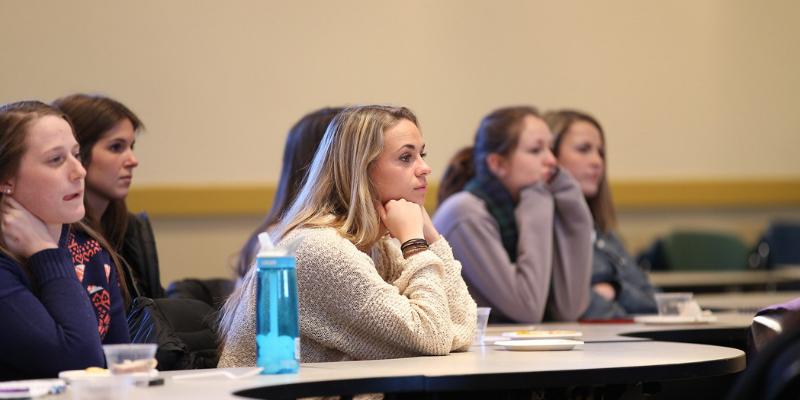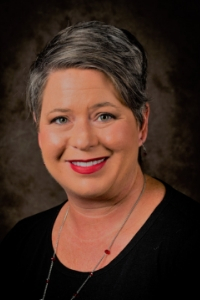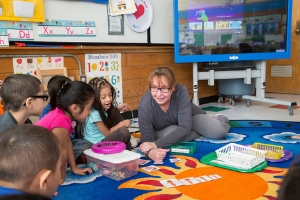The Next Big Problem in Education

James M. Loy, Miami University
“Listen,” says Meredith Wronowski, Miami University visiting assistant professor of educational leadership. “We are at a dangerous point in our country, of not having an effective teacher corps, if we don't do something.” Dr. Meredith Wronowski
Dr. Meredith Wronowski
For those already worried about the state of education in the U.S., this problem appears to be part of another brewing storm. It’s fueled by resentment and frustration. It’s causing burnout and turnover. And it’s leading toward an erosion of teachers, which is a major line of Wronowski’s research.
“I think that’s the next big problem that we have to talk about in education,” Wronowski says. “Teachers aren’t staying long enough to become great teachers. And when a teacher leaves, we’re replacing them with a brand new teacher, who takes five years to develop into their best teaching abilities. But they almost never stay long enough for that to happen.”
As an expert on educational policy, and a former Oklahoma City Public School teacher and school principal, Wronowski is in a unique position to study the challenges that schools now face. Her work applies advanced statistical models to study school decline and teacher turnover, and recent research suggests a striking connection between the pressures of standardized testing and accountability with a teacher’s likelihood of quitting.
Ever since No Child Left Behind (NCLB) ushered in the current era of accountability, standardized testing has become a tremendous point of contention between educators and policymakers. It’s been blamed for a variety of problems, including a rigid and constricting climate that necessitates a scripted curriculum, discourages classroom creativity, and generally leaves little room to address individual student needs.
And now, it appears to be connected to feelings of demoralization and de-professionalization among teachers as well.
“Teacher de-professionalization and demoralization has significantly increased from the 1990s to 2012, the height of NCLB,” Wronowski says. “And those perceptions are significantly linked to turnover. So if teachers are feeling that way, they're much more likely to leave either the profession or move to a different school where they perceive that those pressures are reduced.”
Wronowski defines de-professionalization as a loss of control over what a teacher can teach, and demoralization as losing the ability to making a meaningful difference in a young learner’s life. And the teachers most affected are typically newer, novice teachers, as well as those in high-needs urban and rural schools.
But older, more veteran teachers, on the other hand, were less likely to feel the impact of policy-related testing and accountability pressures.
 “I found that later career teachers, teachers who have been in the field more than 15 years, are less likely to feel de-professionalized and less likely to feel demoralized,” says Wronowski. “I think they're more able to buffer or navigate the threats. They're also more likely to be leaders in their building. So they may have the ability to direct how accountability policy looks or sounds and feels in their building. They're just a little more savvy because of these years of experience.”
“I found that later career teachers, teachers who have been in the field more than 15 years, are less likely to feel de-professionalized and less likely to feel demoralized,” says Wronowski. “I think they're more able to buffer or navigate the threats. They're also more likely to be leaders in their building. So they may have the ability to direct how accountability policy looks or sounds and feels in their building. They're just a little more savvy because of these years of experience.”
However, this is still a cause for concern.
“That being said,” Wronowski continues, “what we have right now is a churn of first through fifth year teachers. A whole bunch of them quit and they just get replaced with brand new first-year teachers, who again just quit. So we're losing that really valuable mid-to-late career experienced teacher who is at the height of their capabilities. That’s who were losing, an entire class of teachers.”
Over the last 10 years, the average years of professional experience among U.S. teachers has dwindled from nearly 16 years of experience down to only seven.
And as this line of research continues, Wronowski hopes it will impel policymakers to start considering the voices and perspectives of teachers when creating and implementing policy, especially when considering the surprising difficulty of replacing a teacher.
The learning curve from college to the classroom can be steep, and it can take years of experience before many teachers find their footing. “You can't just replace a 15-year teacher with a first year teacher and expect the same results,” Wronowski says, “because they're two fundamentally different professionals.”
So unless something changes, the future effectiveness of America’s teaching corps may be in question, particularly if the current pressures of testing and accountability continue unabated.
“I don’t think policymakers understand that aspect,” says Wronowski “They see it like natural selection, like you just weren't meant to be a teacher. Because any teacher worth their salt would be able to handle this pressure. But they don't understand that, yes, people leave. That's great. But the people who are going to replace them are brand-new first-year teachers, who are just as likely to fail.”

